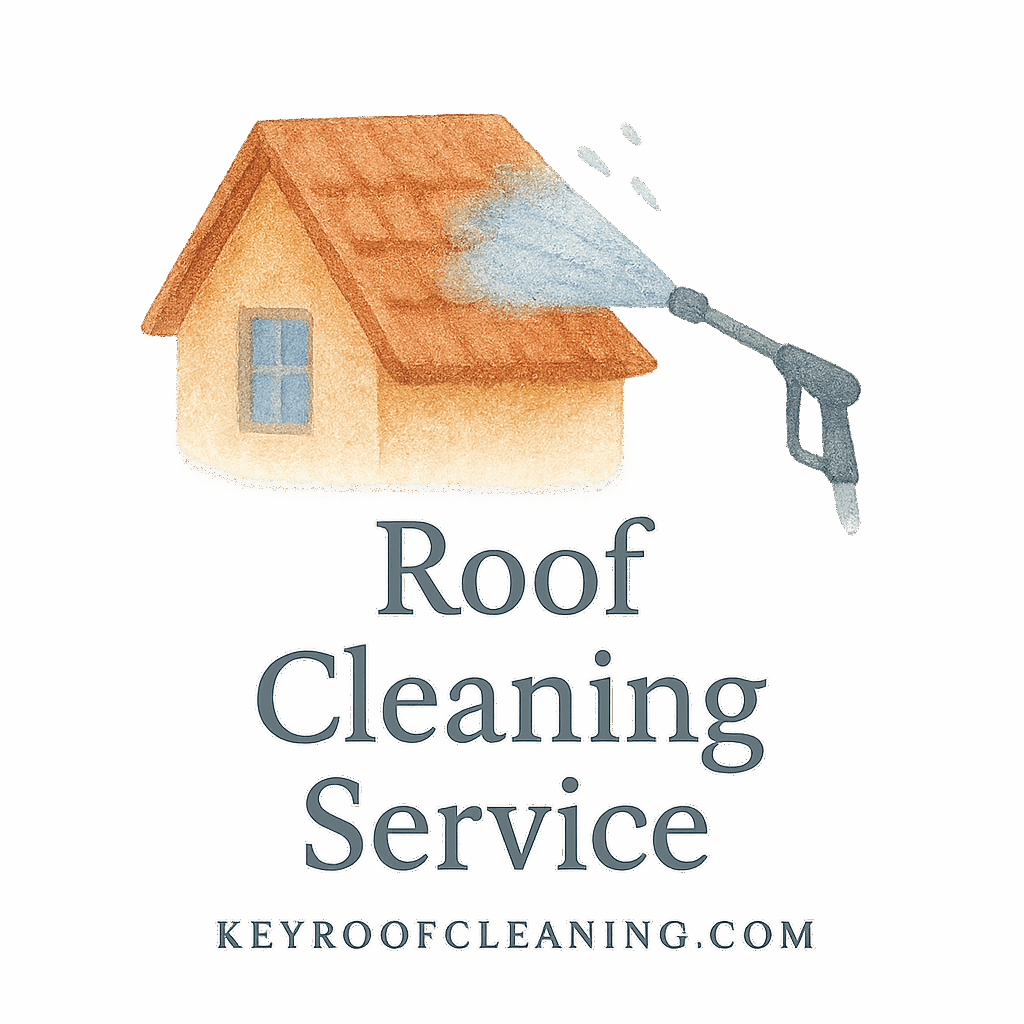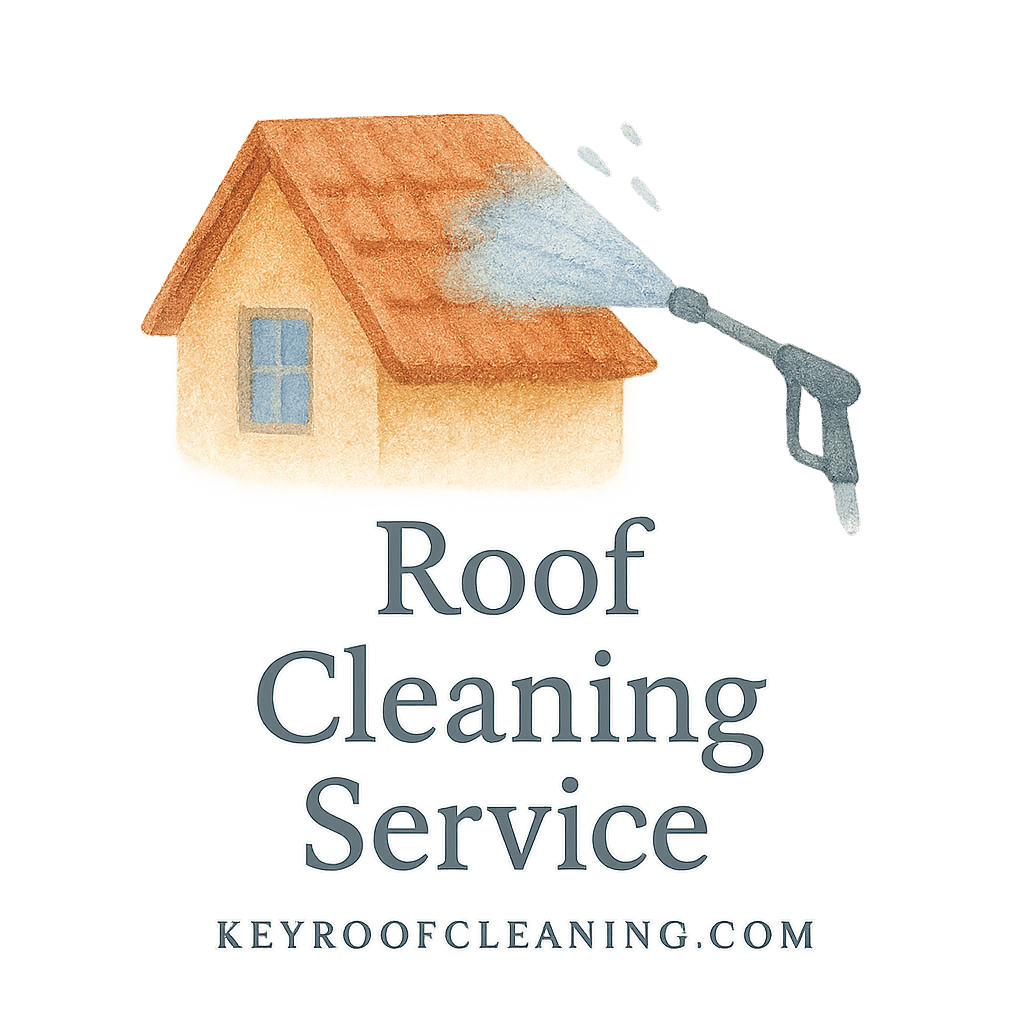Keeping roofs spotless without damage takes more than elbow grease—it takes smart chemistry. If you’re a roof cleaning pro or just diving into the world of soft wash solutions, this article is packed with tips, science, and the best products to keep every rooftop squeaky clean and structurally sound.
Let’s dive into the world of sudsy success.
Understanding the Power of Soft Washing
Why Professionals Prefer Soft Wash Over Pressure Wash
Ever seen someone blast away at a roof with a pressure washer and end up peeling away shingles? Yeah, not great. Soft washing offers a gentle yet effective way to clean roofs without causing damage. It’s not just about looking clean—it’s about preserving your roof’s integrity.
Explore the basics of roof cleaning to see how soft washing stands out.
The Science Behind Soft Wash Cleaning
Soft washing uses a mix of cleaning agents, surfactants, and low-pressure water. The cleaning solution does the hard work, breaking down dirt, mold, and algae at the molecular level—so there’s no need to go full firehose mode.
What Makes a Roof Soft Wash Solution Effective?
Ingredients to Look For
Good solutions aren’t just bleach and water. The best blends often contain:
- Sodium hypochlorite (for mold/algae)
- Surfactants (for penetration)
- Scent neutralizers (for that bleachy smell)
Some even contain boosters or foaming agents for better cling and coverage.
Eco-Friendliness and Biodegradable Impact
The modern homeowner cares about the planet, and so should you. Look for products labeled biodegradable and eco-friendly. These solutions break down naturally without harming gardens, animals, or water supplies.
Safety Considerations When Using Soft Wash Solutions
Personal Safety Gear and OSHA Standards
Soft wash chemicals, while less intense than pressure washers, are still chemicals. Gloves, goggles, respirators, and full-body protection are a must. Follow OSHA standards to stay compliant and safe.
Ladder Safety Is No Joke
Falls are the number one accident in roof cleaning. Make ladder safety a part of every checklist. Anchor points and stability checks should be routine. See our complete ladder safety guide.
Accident Prevention Starts With Training
Brush up on your team’s training regularly. Learn more about accident prevention and add simple routines to your job prep.
9 Soft Wash Solutions Every Pro Should Know
1. Sodium Hypochlorite Blend
This is the go-to base for killing moss, mold, and algae. Add a surfactant, and you’ve got a powerful, fast-acting cleaner. Just be sure to rinse plants thoroughly if overspray happens.
2. Biodegradable Surfactant Mix
These mixes improve surface tension, allowing the solution to cling to tiles or shingles. They’re an excellent pairing with bleach-based blends and ensure deeper penetration.
Explore more about this through our cleaning methods tag.
3. Eco-Friendly Green Cleaning Formulas
If sustainability matters to you (and it should), opt for green methods. These are plant-safe, biodegradable, and won’t compromise effectiveness.

4. Plant-Safe Soft Wash Options
Worried about damaging flower beds and landscaping? Choose roof cleaners that neutralize bleach and are designed with environment and green living in mind.
5. Hydrogen Peroxide-Based Cleaners
These are safer alternatives to bleach that still pack a punch. They oxidize stains instead of bleaching them, and they’re easier on sensitive roofing materials.
6. Industrial-Strength Mold and Algae Removers
For long-neglected roofs, you’ll need heavy-duty products designed to kill at the root. These are perfect for professional jobs where quick turnaround matters.
7. Delicate Roof Surface Cleaners
Some roofs—like slate, cedar shake, or clay tiles—require soft solutions tailored for delicate surfaces. Browse our delicate roof tag to learn which products are safe to use.
8. Commercial Soft Wash Concentrates
These are concentrated mixes you dilute on-site. Great for big projects, they allow professionals to adjust potency depending on the job.
9. DIY Soft Wash Recipes for Small Projects
For budget-conscious jobs, a mix of bleach, water, dish soap, and scent cover can work well—but always spot test first. Great for quick home jobs or smaller surfaces.
Tools and Products to Maximize Efficiency
Choosing the Right Nozzles and Pumps
Using a standard garden sprayer? You might be missing out. Invest in professional-grade pumps and adjustable nozzles to get more coverage and less chemical waste. Head to our tools and products page for smart recommendations.
Best Applicators for Even Coverage
Use foaming nozzles or X-jet applicators for even coating. These tools help maximize chemical efficiency while minimizing runoff.
Matching Solutions to Roof Types and Materials
Tile Roofs, Asphalt Shingles, and Metal Panels
Each roof material behaves differently. Tile is porous and may need a dwell time; asphalt can absorb cleaners; metal might require rust inhibitors. Learn more about roof types and materials to match wisely.
Avoiding Damage on Delicate Roofs
Some solutions may cause staining or erosion if left too long. For delicate surfaces, go with milder agents and soft brushes.
The Sustainability Factor in Roof Cleaning
Supporting Green Living Through Soft Wash
When you choose eco-conscious cleaning products, you’re not just protecting a roof—you’re protecting ecosystems. Learn about our mission for sustainability and green-living.
Environmental Considerations That Matter
Use solutions that meet EPA guidelines and wash responsibly—runoff should not reach storm drains, especially with chemical-based cleaners.
Hiring Tips for Professional Roof Cleaners
What to Look for in a Reliable Roof Cleaner
Professionalism isn’t just about equipment. Are they licensed? Insured? Trained in safety and solution handling?
Browse our professional service resources for insider tips.
Questions to Ask Before Hiring
- What chemicals do they use?
- Are they OSHA compliant?
- Do they offer plant protection and post-cleaning care?
- Are they listed under trusted roof cleaning providers?
Conclusion
Roof cleaning professionals know that the real magic is in the mix. Choosing the right soft wash solution is about more than just getting the job done—it’s about doing it responsibly, safely, and effectively.
From bleach blends to biodegradable surfactants, every roof tells a different story. But with these 9 soft wash solutions in your toolkit, you’re not just washing away dirt—you’re elevating your craft.
Want to learn more about technique, products, and safety? Check out roof cleaning techniques and maintenance & safety for in-depth guides.
FAQs
1. What is the difference between soft wash and pressure wash for roofs?
Soft washing uses low pressure and chemical agents to clean surfaces gently, whereas pressure washing can damage roofing materials.
2. Are soft wash chemicals safe for plants and pets?
Some are. Look for plant-safe and biodegradable options, and always pre-wet plants to protect them.
3. Can I make my own soft wash solution at home?
Yes, for small jobs. A common mix is water, bleach, and a surfactant like dish soap. But always test on a small area first.
4. How often should a roof be soft washed?
Generally, every 1–3 years depending on climate, roof type, and surrounding environment.
5. What is the best soft wash solution for algae and moss?
Sodium hypochlorite blends with surfactants work great for killing and preventing regrowth.
6. Is soft washing suitable for all types of roofs?
Almost all. Just adjust your solution strength and dwell time for delicate roofs like slate or wood shake.
7. Where can I learn more about roof cleaning safety and solutions?
Visit Key Roof Cleaning and explore tags like checklist, solutions, and hiring tips for more.


